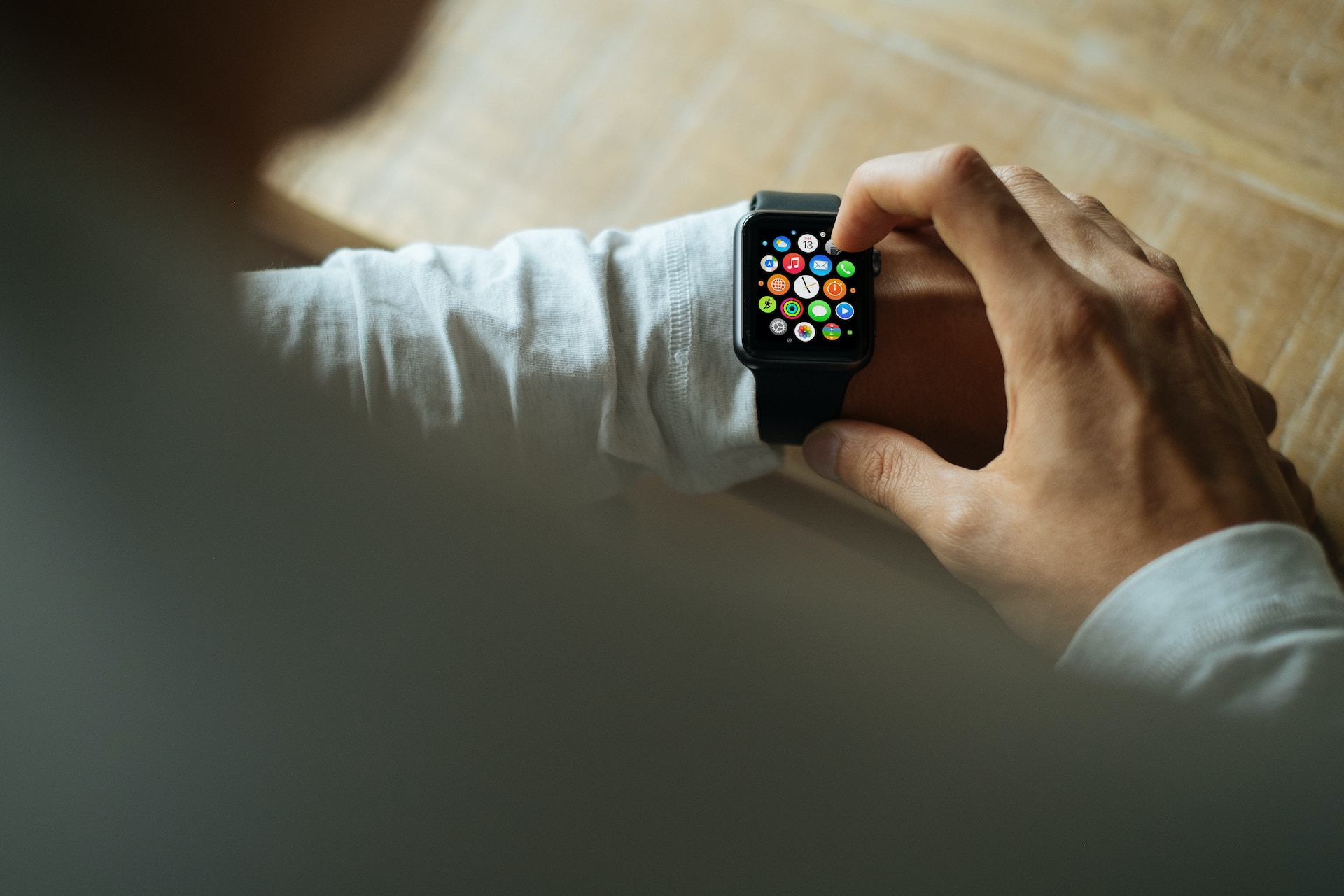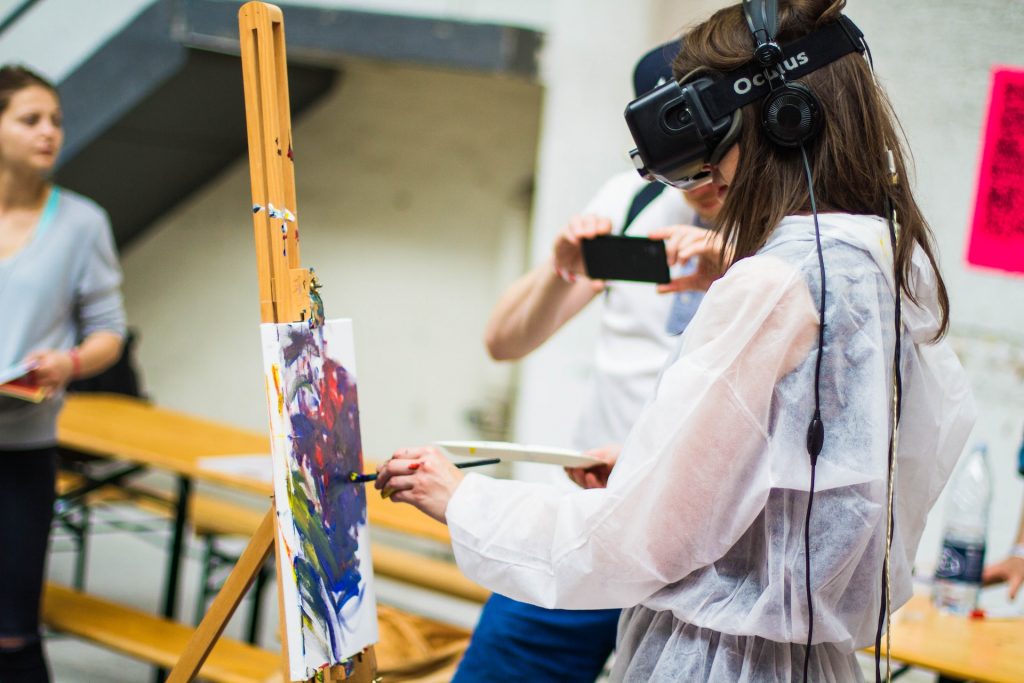Enter wearable technology – a rapidly evolving field that’s starting to make a significant impact in academia. From AR glasses to smart pens, wearable technology is becoming a crucial component in a student’s toolkit.
If you’re a student striving to balance the demands of college life, you might find yourself considering various support options. You can use wearable technology or buy essay online on essayhub.com to manage your workload. There’s an entire world of options to dig into. So, let’s discuss the most innovative wearable tech that might just be the study buddy you never knew you needed.
Photo:
1. The Smartwatch: A Personal Assistant on Your Wrist
Picture this: you’re studying in the library, and a gentle vibration reminds you of your next class or a pending assignment deadline. Smartwatches come equipped with calendar and reminder functions that keep you on track without needing to constantly check your phone. They can even sync with your college’s academic calendar.
Furthermore, many smartwatches have voice-recognition capabilities. This feature can be a game-changer for students who thrive on verbal learning. Instead of typing out notes, you can speak them into your watch. This method allows you to capture thoughts in a more fluid, natural manner.
2. Fitness Trackers: More Than Just Step Counters
At first glance, a fitness tracker might seem irrelevant to academic success. But let’s delve deeper. A healthy body leads to a healthy mind, and fitness trackers do more than just count steps or monitor heart rates. With their help, you can:
-
Track your sleep patterns and receive suggestions for improvement.
Set hydration reminders during intense study sessions.
Monitor stress levels with built-in heart rate variability (HRV) sensors.
Use sedentary reminders to take short, active breaks from studying.
Track exercise routines to maintain a balanced lifestyle.
Monitor dietary habits through integrations with nutrition apps.
Set daily physical activity goals to keep energy levels high.
Use mindfulness exercises to reduce stress.
Receive motivational messages to keep your spirits up during finals.
Track your achievements and set new goals as you progress.
By monitoring and adjusting your physical habits, you’re building a foundation for enhanced cognitive clearness and concentration.
3. AR Glasses: A New Dimension of Learning
AR glasses are rapidly becoming a reality in the educational sphere. Imagine sitting in a lecture hall, and as the professor speaks, relevant statistics, diagrams, and data float in your field of vision, enhancing the learning experience. AR glasses can bring textbooks to life, making complex concepts easier to grasp.
Moreover, these glasses can be a boon for remote learners. Attending virtual classes through AR glasses can simulate being in an actual classroom, complete with interactive elements. Thus, this technology bridges the gap between traditional and online learning.
4. Smart Pens: Revolutionizing Note-Taking
Note-taking is a vital skill for students but is often fraught with challenges. Use smart pens, a tool that revolutionizes this fundamental task. They can even record lectures. Imagine attending a lecture and being able to replay specific parts of it later, synced with your handwritten notes. This capability is invaluable for reviewing complex concepts or clarifying misunderstandings.
Additionally, smart pens can digitize your notes, making them searchable and shareable. Your notes will become organized and easily integrated with other digital study tools.
5. VR Headsets: Immersive Learning Experiences
VR headsets are not just for gaming; they offer immersive learning experiences that can transport you to different worlds. They can make learning more interactive, which is especially valuable for visual and experiential learners.
-
Experience complex scientific phenomena up close.
Engage in simulated lab experiments safely and cost-effectively.
Learn languages by immersing yourself in virtual environments.
Visualize mathematical concepts in three dimensions.
Participate in virtual group projects and collaborations.
Experience literature and art in a new, immersive way.
Conduct virtual dissections in biology classes.
Simulate engineering and architectural designs.
Explore different cultures and environments without leaving your room.
After taking off the headset, the immersive experience leaves a lasting impression, making learning more memorable and effective.
6. E-Textbooks and Digital Libraries: The End of Heavy Backpacks
Digital versions of textbooks are not only more convenient but also often more interactive. With features like searchable text, hyperlinked glossaries, and embedded multimedia, e-textbooks turn reading into an engaging, multi-dimensional experience.
Furthermore, digital libraries provide access to resources beyond what’s available in a college library. They open up a world of scholarly articles, rare books, and research materials right at your fingertips. This easy access encourages broader and deeper research, enhancing the quality of academic work.
7. Smart Clothes: Wearable Technology for Comfort and Focus
Lastly, let’s talk about smart clothes – an emerging trend in wearable technology. Imagine clothing that adjusts its temperature based on your body heat or cushions that reduce back pain during long study sessions. These innovations can significantly improve comfort, allowing students to focus better on their studies.
Additionally, some smart clothes are designed to monitor physiological responses, like stress or fatigue levels, providing insights into when you need a break or a change of activity. By being more in tune with your body’s needs, you can manage your study sessions more effectively, leading to better academic performance and overall well-being.
To Sum Up
Wearable tech offers exciting possibilities for college students, whether through smartwatches that keep your schedules on track, VR headsets that bring your studies to life, or smart clothing that ensures your comfort during long study hours. There are also times when external help, such as the best essay writing service, can be a valuable resource in managing overwhelming academic demands. This shift towards technology-assisted learning helps manage the day-to-day aspects of college life and achieve deeper, more effective study sessions. The key is to integrate technology wisely into your study habits, ensuring that you remain at the forefront of your educational journey.
Author Bio
Essay Writer Nicole Hardy, renowned education and arts journalist, widely recognized for her insightful and comprehensive coverage of performing arts education. With a career spanning over a decade, Hardy has established herself as a leading voice in the field, known for her in-depth analyses and engaging writing style. She holds a Master’s degree in Journalism from the University of Arts, where she specialized in arts and culture reporting.








